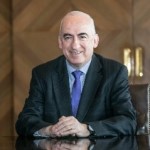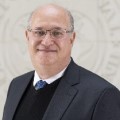Wednesday, Oct 12, 2022 | 03:00 PM - 03:30 PM
Location: Cedar Hall, HQ1-1-660

 |
Leonardo Villar Governor of the Central Bank of Colombia
|
Leonardo Villar is the current Governor of the Colombian central bank, Banco de la República, since January 2021. Previously, Villar was Executive Director at the International Monetary Fund (IMF) for Spain, Mexico, Colombia, Venezuela and four Central American countries--Guatemala, Costa Rica, Salvador and Honduras-- during two years. He was also Executive Director of FEDESARROLLO, a widely recognized Colombian think tank, between 2012 and 2018. He also acted as Chief economist and Vice-President of Economic Development and Public Policies at CAF – Development Bank of Latin America between 2009 and 2012. In the Colombian public sector, Villar was Member of the Board of Directors of the Colombian central bank for twelve years, as well as Technical Deputy-Minister at the Colombian Ministry of Finance and as Foreign Trade Advisor to the Colombian Government. Villar has had different responsibilities in the Colombian financial sector and has taught at several Colombian universities. He has published extensively in the areas of macroeconomics, social policy, foreign trade, and financial and foreign exchange policy. He holds a BA and MA in Economics from the Universidad de los Andes and a MSc from the London School of Economics, where he also pursued doctoral studies.
 |
Ilan Goldfajn Director Western Hemisphere Department, IMF
|
Ilan Goldfajn is the Director of the IMF’s Western Hemisphere Department. He was Governor of the Banco Central do Brasil (BCB) from May 2016 until February 2019. During his tenure at the BCB, he oversaw implementation of significant regulatory changes that opened the door to new players in the financial services industry, spurred innovation, and digitalization, and fostered the growth of fintech companies that has had a positive impact on Brazil’s financial sector. In 2017, he was elected Central Banker of the Year by The Banker magazine; and the year after, he was named Best Central Banker by Global Finance magazine.
Mr. Goldfajn’s experience in the private sector include positions as Chief Economist and Partner of Itaú Unibanco, founding Partner of Ciano Investimentos, and Partner and Economist at Gávea Investimentos—three leading financial institutions in Brazil. More recently he was the Chairman of Credit Suisse Brazil’s Advisory Board. He has also worked as a consultant to a number of global financial organizations, including the World Bank, the United Nations, and the IMF.
He has taught economics at various universities in Brazil and the United States and has published numerous articles and books. Mr. Goldfajn holds a PhD in Economics from the Massachusetts Institute of Technology (MIT), a master’s degree in Economics from the Pontifíca Universidade Católica and a bachelor’s degree in Economics from the Universidade Federal, both in Rio de Janeiro, Brazil.
Key Points:
Quotes:
“[Colombia’s] rate of growth of GDP this year will be one of the highest of the world. That reflects an even higher number in terms of growth in aggregate demand, and that poses a huge challenge. This is good in the sense that we have good growth and per capita income is growing this year, but in order to make it sustainable and have a sustainable economy, we have to tighten monetary policy, and we have been doing so.” Leonardo Villar
“We know inflation, we know the cost of inflation. When we saw inflation going up, it was very important for us to avoid the situation in which we were 25 years ago, and that is a key reason for [tightening first].” Leonardo Villar
“[Fiscal and monetary policy] need to act together […]. The risk is that if you do not have both instruments working together, at some point you would need to do more, and then the risk is that deceleration that comes later could be less smooth than we would like.” Ilan Goldfajn
Contributor: Andrea Arévalo Arroyo